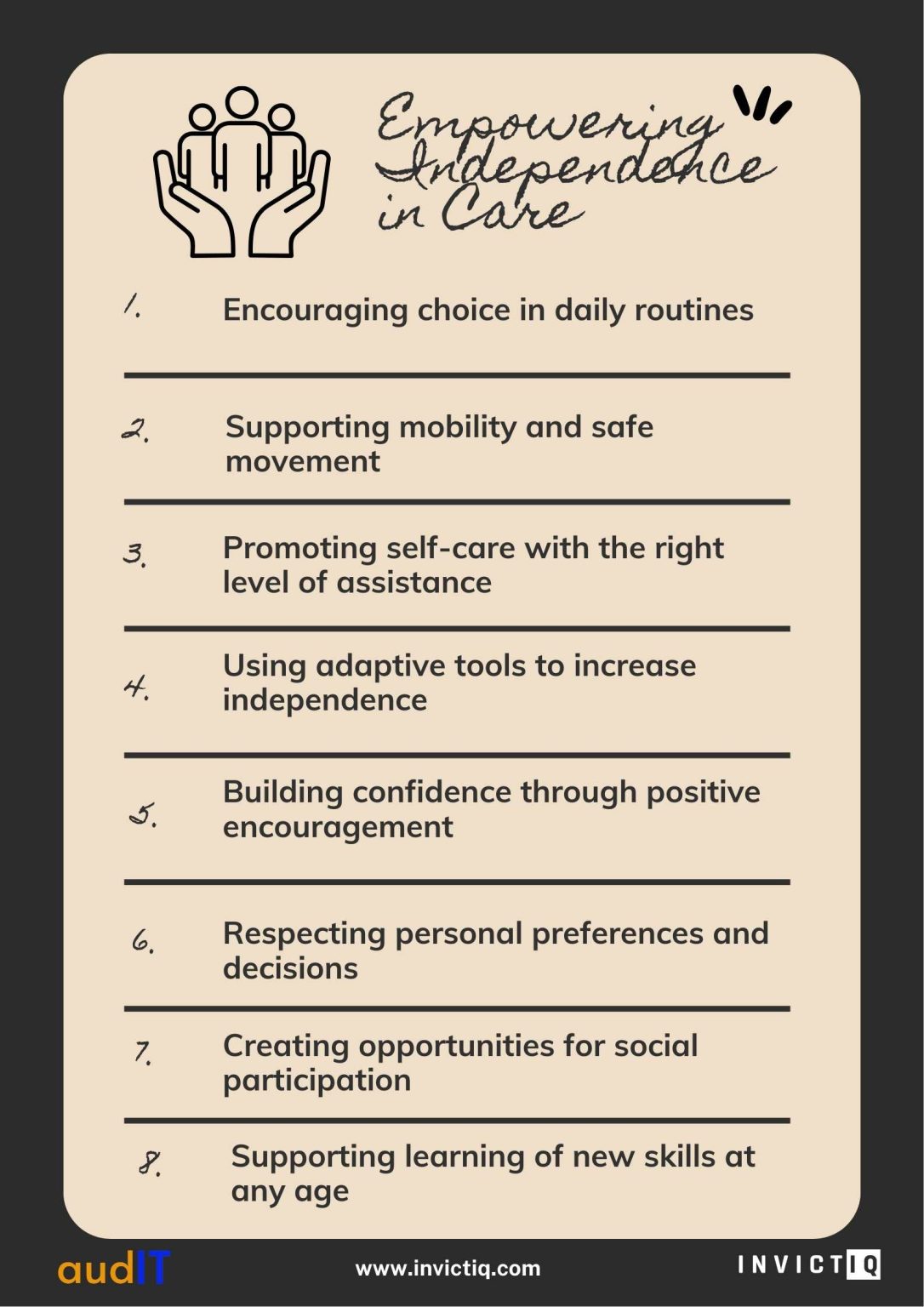Empowering independence is more than a fancy couple of words, but something that guide how we support individuals to live fulfilling lives. Independence fosters dignity, confidence and wellbeing and when embedded into care practices, it transforms services from transactional task focused to transformational and life changing.
Why independence matters
Independence in social care means enabling individuals to make choices, participate in decisions and maintain control over their lives. It’s about respecting autonomy, even when capacity is limited, and ensuring that every person feels heard and valued.
Evidence has shown that promoting independence:
- Enhances emotional and mental wellbeing
- Reduces reliance on services
- Delays future care needs
- Improves quality of life and social engagement
What role do audits play
I have said this many times but audits in social care have evolved from tick-box exercises to tools for quality improvement. Person-centred audits, especially when supported by digital platforms like Audit on Cloud by InvictIQ, allow providers to:
- Track how care supports autonomy and choice
- Identify trends in independence outcomes
- Align care delivery with CQC standards
- Create feedback loops that inform continuous improvement
Relating audits back to the CQC Framework and Regulations, they can help evidence how you are providing safe and effective care but also that you are responsive to individual needs and promoting independence. The Care Quality Commission defines Responsive care as that which is tailored to the needs of individuals and communities. It involves understanding and planning care around personal circumstances, ensuring accessibility and equity and acting on feedback to improve services. Caring is about treating people with compassion, dignity and respect. It requires listening actively, adapting care to individual preferences and creating environments where people feel safe and valued.
The importance of utilising feedback
Never underestimate the power of feedback and speaking to people, both those you support and the people supporting them. You will find that this provides real-time insights into how individuals experience support and whether it truly empowers them. There are many ways to gather feedback including surveys, suggestion boxes, casual conversations and much more. It’s really important you create a culture of wanting feedback and looping back on actions taken with this feedback as this builds trust and assurances that their voices and opinions and being listened too.
I am conscious that the above sounds like a one-off thing you implement, but empowering independence is a continuous commitment to person-centred care. Needs change, wishes and hopes change and so does your team, so it’s important to continuously reflect, seek feedback and empower people to live independent and fulfilled lives.



